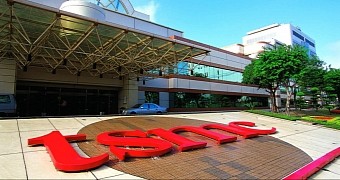Apple is one of the most important clients for Asian component suppliers, which is why there's a fierce competition to win exclusivity over some of the hardware inside the iPhone.
For example, TSMC managed to win that exclusivity for the production of A10, the chipset inside the iPhone 7. The Taiwanese company achieved that due to its InFO packaging technique that allows the A10 to remain very thin, while at the same time delivering improved performance and efficiency.
However, the chipset is made on TSMC's 16nm FinFET+ process, which is inferior to Samsung's newly announced 10nm FinFET process. The latter will be used in the upcoming Qualcomm Snapdragon 835 processor that should make its debut next year.
It's clear that TSMC needs to refine its own process in order to win exclusivity over the production of the chipset that will be included in the next iPhones.
It's unclear what company will score a contract with Apple next year, but TSMC has already confirmed that it will start a pilot for its 7nm process in 2017.
Based on these facts, the Chinese media reports that TSMC might be favorite to produce the chipset inside the 2018 iPhone.
Samsung and TSMC could split exclusivity over 2017 iPhone CPU
Unfortunately, many things can happen in two years, so if we know what TSMC plans for the next years, it doesn't mean that its rivals won't improved their technologies.
Apple has a habit of splitting production of certain components between different companies to keep prices on the low side and encourage competition between rival companies. The iPhone 7 and iPhone 7 Plus are an exception since they all come with TSMC's chipset inside.
TSMC promised to finish trial efforts of its 10nm processor in Q4 2016 and that it would make it available to customers in late 2016.
This means that the 2017 iPhone could come with a 10nm processor made by TSMC, but that we don't rule out from the equation its main rival, Samsung.

 14 DAY TRIAL //
14 DAY TRIAL //